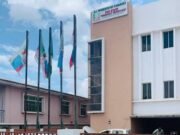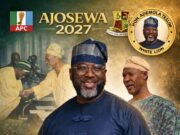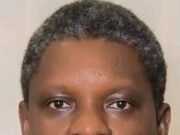Various stakeholders have called for a reform of Nigeria’s education sector to enable it answer important questions in the 21st century.
This call was made during an event to celebrate the 10th year anniversary of Erudite Millennium held at the University of Ibadan on Saturday.
Speaking at the event, the keynote speaker, Lukman Molomo noted that unless a radical change occurs, the disconnect between the town and the gown will continue to fester.
“What we want to discuss here today is about scholarship and contribution to the growth of this society which I am sure we all believe in. We want to build a nation that can stand in the comity of nations globally. And I am confident that the country has the potential to do that.
“We are in a university environment that already has the kind of theories needed to stimulate growth in the country but the essence of my keynote address is to provoke realistic ideas about what the future holds for us and what we must do differently,” he noted.
He explained further that the quality of education in the country today needs surgical operation because what “we were aiming at as a nation yesterday is radically different from what the nation is producing today.”
“If we are not changing the current curriculum we have today, then there’s a problem because there’s a disconnect between the town and the gown. There are jobs in society but we don’t have graduates with the right skillset to get them done.”
In his own remark, Abdulrazak Badmus, who represented the Executive Secretary of the National Commission for College of Educations in Nigeria, emphasized that the questions that the education sector needs to answer are constantly changing.
“Due to the constantly changing situation of the things, the future is unpredictable because planners in education now have to think ahead of today. The future of education raises the question of values and skills needed by today’s learner to shape the world. To confront this challenge, stakeholders need to understand that success in education depends on the capacity to reflect and build.”
“School curricula should evolve in radical ways such that planners focus on key factors like creativity, critical thinking and resilience needed nowadays. Curriculum overload which deprives students time to focus on key issues must also be addressed. Curriculum content must be of high quality and it must be of equity such that all categories of students will benefit from it,” he added.



































